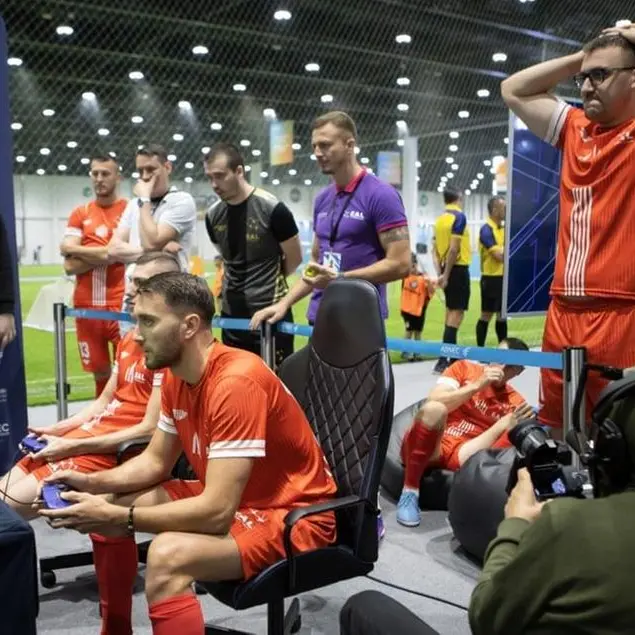PHOTO
New regulations to stop dangerously underweight athletes in climbing competing in the Olympic Qualifier Series and the Olympic Games in Paris later this year have been introduced by the International Federation of Sport Climbing (IFSC).
The regulations relate to Relative Energy Deficiency in Sport (RED-S), where an athlete's calorie intake does not match what they burn during exercise, which over a period of time can lead to serious short and long-term health issues, including eating disorders.
The new policy will come into effect before the start of the 2024 climbing and paraclimbing season, which gets underway in Keqiao, China on April 9.
Climbers in particular gain benefit from a high strength to weight ratio, which studies suggest have led to dangerously underweight athletes.
Recognised by the International Olympic Committee (IOC) as a syndrome in 2014, symptoms of RED-S can include low immunity, decreased bone density and disturbed sleep.
While the IFSC have been monitoring climbers' body mass index (BMI) since 2017, they have previously left it up to national federations to take any action needed, but the pursuit of results has meant some cases have gone unchecked.
"The policy will not only help us determine which athletes are most at risk, it will also help raise awareness of the issue, provide help to those who need it, and ensure the rights of each athlete are protected," IFSC president Marco Scolaris said in a statement on Wednesday.
Climbers will provide details of their height, weight, heart rate and blood pressure, with national federations to either issue a health certificate based on those parameters, or require they go for more testing.
The IFSC will conduct random testing throughout the climbing season. An external commission will review data from suspected cases and compare it with the national federation health certificates.
"There have been calls for BMI to be used as a yardstick for RED-S but, on its own, a simple BMI test does not provide an accurate picture of a person's health and, importantly, would also not be legally defensible," said IFSC General Director Piero Rebaudengo.
"In addition, BMI varies greatly from one country to another. Excluding athletes from competition based only on a BMI reading would therefore be a gross violation of their rights."
A 2022 survey of 114 female sport climbers revealed 14.9% had an eating disorder and 15.8% said they did not have periods, which is a common symptom of RED-S. (Reporting by Nick Said Editing by Christian Radnedge)





















